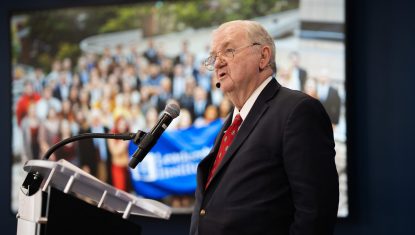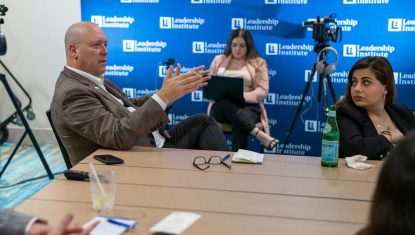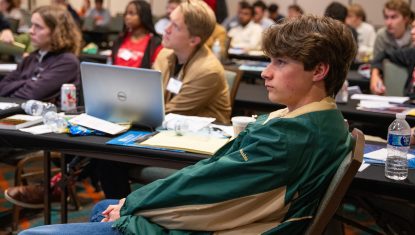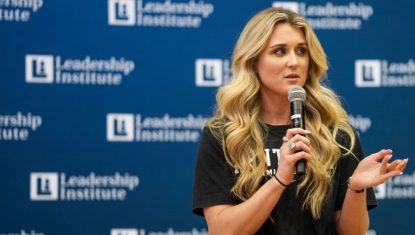What follows is advice for conservatives of whatever party. Here is how you can be a party leader, even if you’re starting from scratch:
- Volunteer to work in the election campaigns of your party’s nominees. Under-promise and over-perform.
- Donate to your party’s good candidates. Financial contributions put you on the political map. Attend party fundraising events. Give to your state and local party committees.
- Then attend party committee meetings. There you will get to know the existing party activists and leaders. And they will get to know you. If your local party committee has a vacancy, accept it if offered. But modestly keep your eyes and ears open and your mouth shut as you learn the ropes. Most such meetings are not very exciting. Always take with you something to read or write during the less interesting parts of party meetings.
- If you are not familiar with the organizational structure and rules of your party, get copies of the state and local party committee rules. Study them and the applicable rules of procedure, usually Robert’s Rules of Order, Newly Revised.
- Participate in some party auxiliary group activities: youth groups, women’s groups, etc. If there is none in your area, volunteer to start one.
- In most areas, there is a fairly rapid turnover of party officers. Don’t push yourself for party office. If you do good work in the local party, others probably will ask you to take on some responsibilities. Accept these tasks. Perform them well. Soon you may be drafted into local party committee office. But you don’t have to hold a party office to play a leading role from time to time in a party committee.
- In some areas, local party committees are moribund or dead. The party officers may be unsatisfactory for a variety of reasons. They may be lazy. They may be incompetent. They may be fine people burned out from years of good work. They may be hanging on to power for its own sake. They may be actively hostile to your conservative principles. If party leaders are unsatisfactory, you should work to see that they are reformed or replaced.
- Build strong working ties with any other conservatives you meet in party activities.
- Build strong working ties with leaders of conservative non-party activity in your community, such as:
- Taxpayer associations
- Veterans groups
- Ethnic organizations
- Right to work groups
- Right to keep and bear arms groups
- Civic associations
- Church groups
- Traditional values groups concerned about such issues as abortion, drugs, education, pornography, etc.
- Make contacts with national conservative groups to locate and involve their local activists in your party.
- Learn the principles of effective direct mail and start to assemble lists of addresses and phone numbers of local conservative activists and donors.
- Party committees often have influence in the election of candidates for public office, but in some cases they also have decisive power over the rules and therefore the outcomes of the nomination contests. Find out the role of your state and local party committees in the nomination process and the schedule of their required activities before upcoming elections.
- Party committees must renew themselves periodically, usually in two-year or four-year cycles. New party committees may be elected by primaries, conventions, or mass meetings. Newly elected committees usually elect their new party officers. Local party units usually send delegates to state party conventions. Sometimes, membership on party committees and delegate slots to party conventions are available just by filing properly for openings. Find out how these processes work in your party. Among the things you’ll need to know:
- When are the next party primaries or conventions?
- What party offices are to be filled and for what public offices are party nominees to be chosen?
- What are the deadlines for filing, dates of conventions and dates of primaries?
- And how does one file?
- Because all local party committee elections and party primaries are open at the bottom, whoever gets the most people to participate wins. Your mission, if you choose to accept it, is to organize a sufficient number of conservatives to win primaries, conventions and party committee elections. It is simple but not easy.
- Sometimes local party committees fail to run candidates for public offices. This is almost always a bad practice. A major party should run candidates for every available office, whether or not there seems to be a good chance to win. If there appears to be no strong candidate available, run someone who would act responsibly as a candidate and who, if elected, would do a good job. Those are the only requirements. Run a candidate even if the other party has an “invulnerable” incumbent, even if your candidate is unknown, even if your candidate can’t raise enough money to make a serious race. That’s how to build a strong and useful party over time.
- A leader is someone who has a following, someone with influence over others. Review your list of conservative leaders you now know in your area, those active in your party and those who should become active.
- Invite several of the key conservative leaders from your local area to a confidential meeting, perhaps one evening at your home, to discuss the future of your local party. Serve simple refreshments. Points to be discussed at this meeting should include:
- The effectiveness of the local party committee and its officers.
- The strength of conservatives compared with non-conservatives on the party committee and among the committee’s officers.
- The schedule and process by which the party committee renews itself and elects new officers.
- The schedule and process by which delegates are chosen by the local party to any party conventions at the local, congressional district, state, or national levels.
- Upcoming elections and the potential conservative candidates for those elections.
- Strategies for increasing conservative influence within the local party.
- Develop an action plan based on the discussions at your meeting. Assign specific tasks to attendees, such as:
- Contacting other conservatives in the community to encourage their participation in the party.
- Identifying potential candidates for upcoming elections and discussing their willingness to run.
- Organizing and attending local party meetings and events to build a conservative presence.
- Monitoring the activities and decisions of the local party committee and reporting back to your group.
- Follow through with your action plan. Keep in regular contact with the group of conservative leaders you have assembled. Update each other on progress and adjust your strategies as needed.
- Use local media to your advantage. Write letters to the editor, op-eds, and use social media to promote conservative values and candidates. Public visibility can help build momentum and attract more supporters to your cause.
- Be patient and persistent. Building a strong conservative influence within your local party takes time and effort. Celebrate small victories and learn from any setbacks.
- Stay informed about national and state-level conservative movements and issues. Align your local efforts with broader conservative goals and initiatives when possible.
- Encourage and mentor new conservative activists. Share your experiences and knowledge to help them become effective participants in the political process.
- Always conduct yourself with integrity and respect. Building a positive reputation within your party and community will strengthen your influence and effectiveness as a conservative leader.










